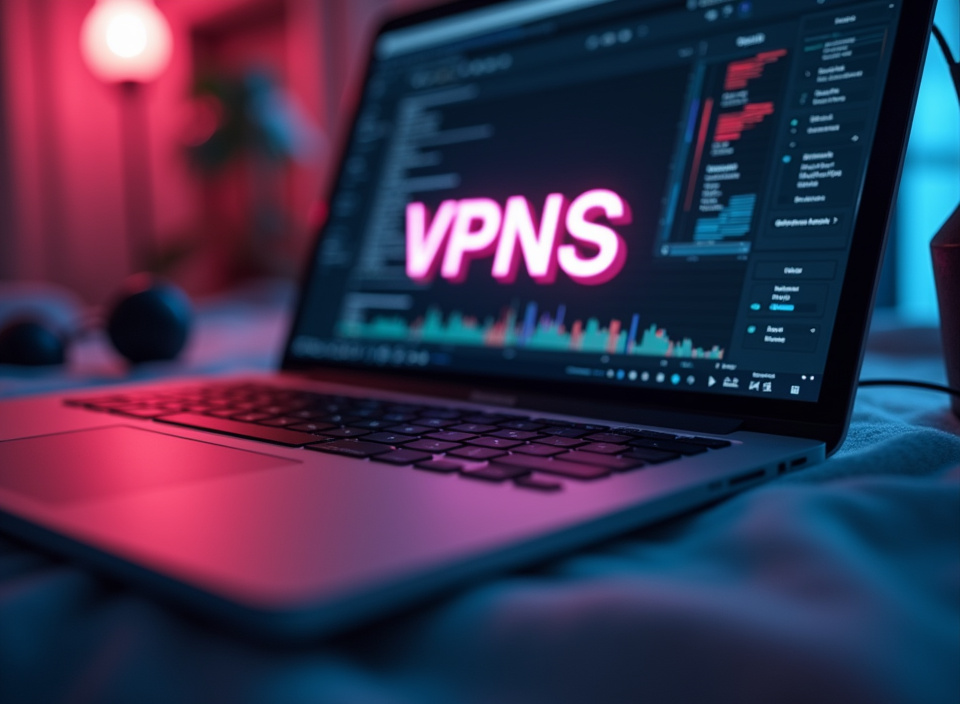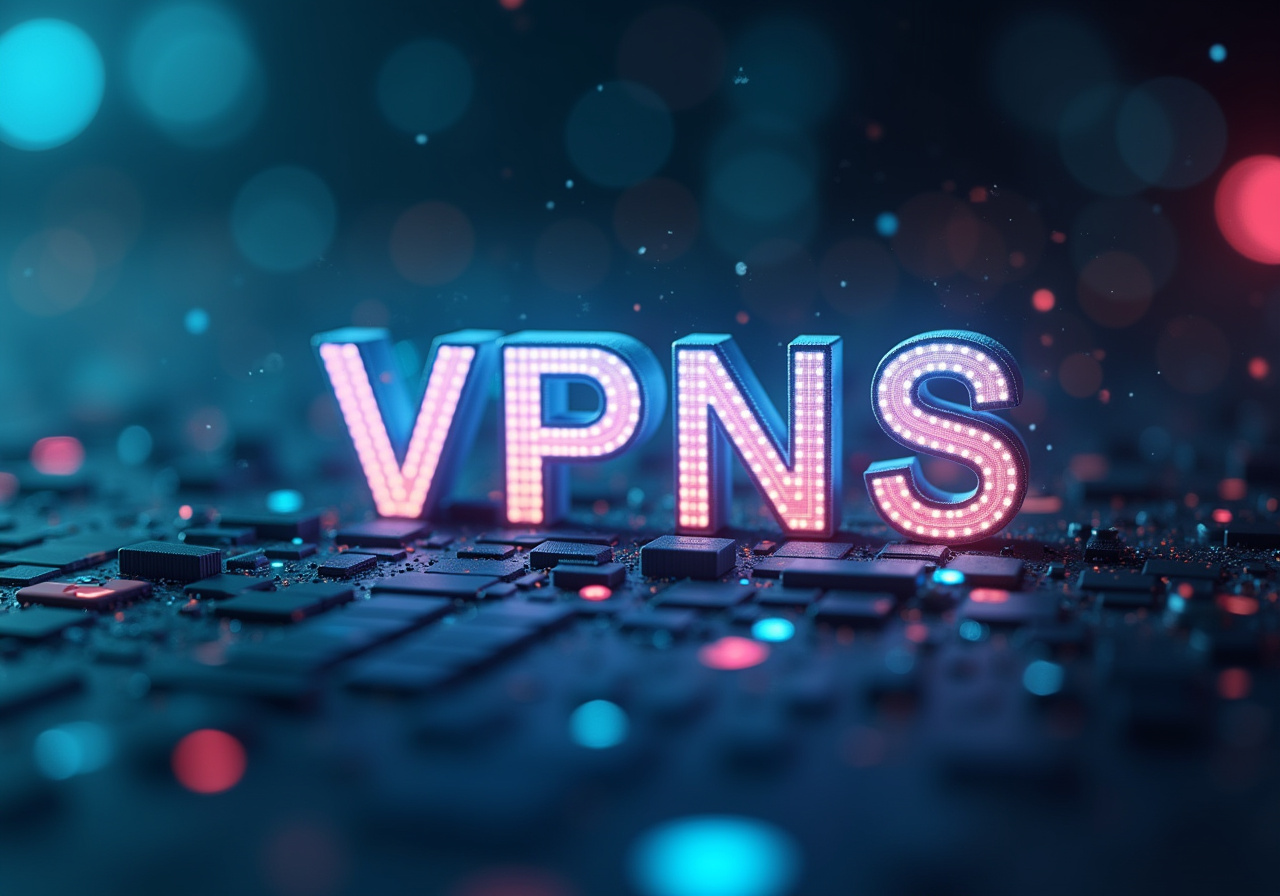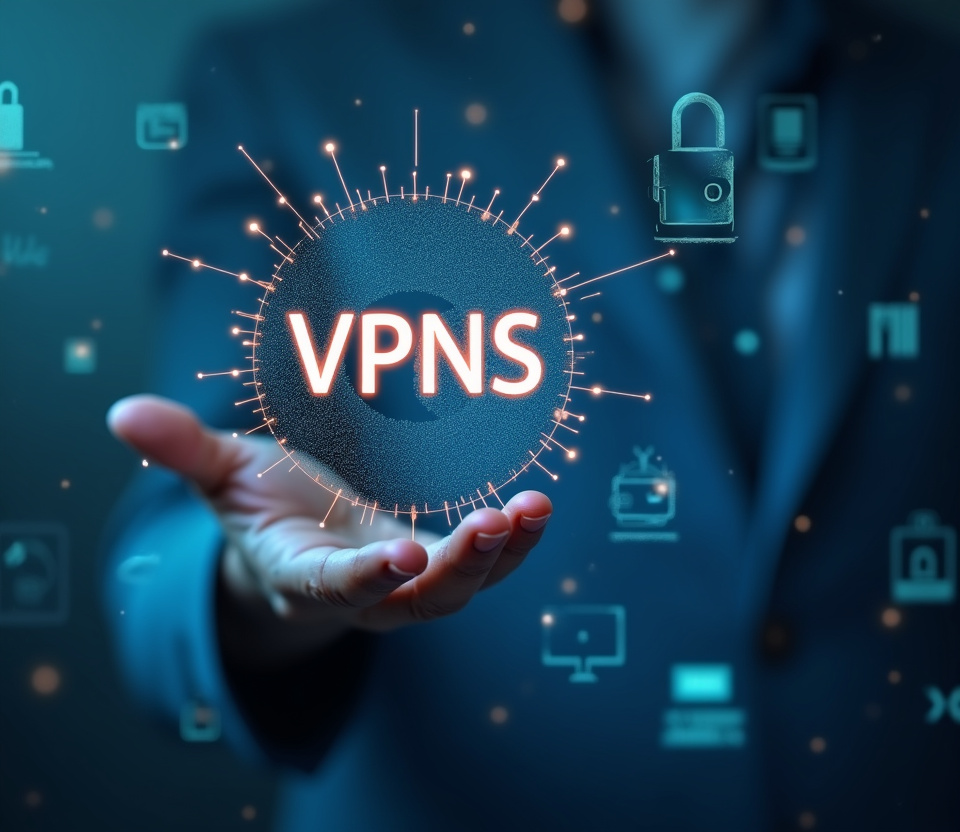VPNs for Civic Engagement Platforms: Ensuring User Data Privacy

Table of Contents
The Crucial Role of Data Privacy in Civic Engagement
In an age where digital interaction is increasingly interwoven with civic participation, the necessity for safeguarding user data on civic engagement platforms cannot be overstated. This article delves into the crucial role of Virtual Private Networks (VPNs) as a vital technological safeguard, ensuring user data security and fostering privacy protection within these platforms. Civic engagement platforms, encompassing online forums, petition sites, crowdsourcing initiatives, and virtual town halls, have emerged as indispensable tools for democratic participation and community empowerment.
However, their reliance on user data collection and exchange introduces inherent risks, including data breaches, surveillance, and censorship, all of which can erode trust and hinder effective civic engagement. To counter these threats, a civic engagement VPN offers an encrypted tunnel for internet traffic, effectively shielding user activities from unauthorized access and preserving user anonymity. This technology enables individuals to participate in civic activities online with a heightened sense of security, knowing that their personal information and communications are safeguarded.
The integration of VPNs into civic engagement platforms signifies more than just a technical upgrade; it represents a fundamental commitment to user data security, fostering trust within the community, and facilitating broader participation in critical civic discussions. Furthermore, the ability of VPNs to circumvent censorship and grant access to blocked content empowers users to stay informed and exercise their right to freedom of expression, both cornerstones of a healthy and vibrant democracy. The significance of privacy protection within the realm of civic engagement cannot be emphasized enough.
When platform users have confidence that their data is secure and their online activities are shielded from unwarranted surveillance, they are more likely to actively engage in civic discourse, freely express their opinions, and engage in constructive dialogue with their peers. This increased level of engagement contributes to more informed decision-making processes, strengthens community bonds, and cultivates a more dynamic and participatory civil society. Conversely, if users harbor fears that their data might be compromised or their online activities monitored, they may resort to self-censorship, withdraw entirely from online participation, and lose confidence in the platform's ability to protect their interests.
This chilling effect can stifle open debate, impede social progress, and ultimately undermine the very purpose of civic engagement platforms. Therefore, VPNs play a crucial role in establishing a safe and reliable environment for online civic participation, empowering users to exercise their democratic rights without fear of reprisal or intrusive surveillance. Beyond the benefits for individual users, VPNs also offer substantial advantages to nonprofit organizations and advocacy groups that operate civic engagement platforms.
These entities often handle sensitive data related to their members, donors, and beneficiaries, making them prime targets for cyberattacks and data breaches. By implementing a robust and secure VPN, nonprofits can safeguard their internal communications, protect confidential information, and prevent unauthorized access to their sensitive systems. This enhanced security posture not only protects the organization's reputation and financial stability but also ensures that they can continue to effectively pursue their mission without fear of disruption.
Furthermore, a VPN for nonprofits can facilitate secure remote access for staff and volunteers, allowing them to work from any location with the assurance that their connection is protected. This flexibility is particularly valuable for organizations that operate in remote or underserved areas, where internet access may be less reliable or inherently insecure. By enabling secure remote access, VPNs empower nonprofits to expand their reach, enhance their operational efficiency, and better serve their communities.
This allows these essential organizations to focus more on their mission and less on costly security protocols, allowing them to reach more of the population that needs their help. It makes the whole organization both more secure and more agile.
Understanding VPN Technology and its Benefits
Selecting the appropriate VPN solution for a civic engagement platform necessitates a comprehensive evaluation of several critical factors. These include the strength of encryption protocols, the breadth and distribution of server locations, the stringency of the VPN provider's logging policy, and, of course, the overall cost of implementation and maintenance. Robust encryption is paramount to ensuring that user data remains confidential and protected from interception and decryption attempts.
Prioritize VPNs that employ advanced encryption standards, such as AES-256, which is widely recognized as a highly secure and virtually unbreakable encryption algorithm. This level of encryption provides a strong defense against potential eavesdroppers and malicious actors seeking to compromise user privacy. The geographical distribution of VPN server locations directly impacts the user's ability to access content from various regions and effectively bypass censorship restrictions implemented by governments or other entities.
Opt for a VPN that boasts a comprehensive network of servers strategically located in geographically diverse locations. This expansive network allows users to connect to servers in different countries or regions, masking their true IP address and gaining access to content that might otherwise be restricted in their current location. A strict no-logs policy is absolutely essential to guarantee that the VPN provider does not collect, store, or track any data pertaining to user activity.
Carefully scrutinize the VPN provider's privacy policy to fully understand what data, if any, is collected and how it is subsequently used. A reputable VPN provider will explicitly state its commitment to a no-logs policy and provide transparent information about its data handling practices. Be wary of providers that collect excessive amounts of user data or have vague or ambiguous privacy policies.
The cost of the VPN service and its associated features should align with the organization's budgetary constraints. Many VPN providers offer a range of subscription plans with varying features and price points. Conduct a thorough comparison of the offerings from different providers to identify the plan that delivers the optimal balance of features, performance, and cost-effectiveness for your specific needs.
Consider factors such as bandwidth limitations, server availability, and the number of devices that can simultaneously connect to the VPN. The implementation of a VPN on a civic engagement platform can be approached in a variety of ways, depending on the organization's technical resources and specific requirements. One approach involves integrating the VPN directly into the platform's software infrastructure, requiring users to establish a VPN connection before accessing the platform's features.
This approach provides a seamless and secure user experience but demands significant technical expertise for implementation and ongoing maintenance. A second approach entails providing users with detailed instructions and guidance on how to independently install and configure a VPN on their personal devices. While this approach is less technically demanding for the organization, it relies on users taking the initiative to actively protect their own privacy.
A third option involves partnering with a reputable VPN provider to offer discounted or even free VPN subscriptions to users of the platform. This can be a highly effective strategy for promoting widespread VPN adoption while simultaneously easing the financial burden on individual users. Regardless of the chosen implementation approach, it is crucial to provide clear, concise, and readily accessible communication to users about the benefits of utilizing a VPN and how to correctly install and configure it on their devices.
In conclusion, securing the right VPN for a civic engagement platform requires careful consideration of encryption strength, server location diversity, logging policies, and cost. Proper deployment guarantees user data security and promotes a safe online interaction environment.
Implementing VPNs for Enhanced Platform Security
Beyond the technical implementation of a VPN, it is imperative to address the legal and ethical dimensions associated with its usage. VPNs, while primarily intended for privacy and security enhancement, can also be employed to circumvent censorship and gain access to content that may be legally restricted in certain jurisdictions. Therefore, it is crucial to ensure that users are fully informed about the laws and regulations pertaining to VPN usage in their respective countries and that they utilize VPNs responsibly and ethically, respecting local laws and avoiding any illegal activities.
Transparency and ethical conduct are paramount to fostering trust and maintaining the integrity of the civic engagement platform. Furthermore, it is essential to maintain complete transparency with users regarding the VPN's data collection practices, if any, and to obtain their explicit and informed consent before collecting any user data. Clearly articulate the types of data that are collected, the purposes for which the data is used, and the measures taken to protect user privacy.
Transparency and accountability are critical for building a strong foundation of trust and goodwill with users, which are essential for the long-term sustainability and success of any civic engagement platform. The enduring success of civic engagement platforms hinges on their ability to proactively protect user privacy and security. While VPNs represent a valuable tool in achieving this objective, they should not be viewed as a panacea.
A comprehensive approach to privacy and security requires a multi-layered strategy that incorporates a range of technical, organizational, and educational measures. This holistic approach should include implementing strong data encryption both in transit (using VPNs) and at rest (using secure storage solutions), regularly conducting security audits and vulnerability assessments to identify and address potential weaknesses in the platform's infrastructure, providing comprehensive training to staff and volunteers on data privacy and security best practices, and proactively educating users about online safety and responsible internet usage. Furthermore, platforms should establish clear and accessible data privacy policies that outline the rights of users and the responsibilities of the platform in protecting their data.
These policies should be readily available on the platform's website and should be written in plain language that is easily understood by all users. The policies should also be regularly reviewed and updated to reflect changes in technology, regulations, and best practices. In addition to these internal measures, platforms should also actively collaborate with other organizations and stakeholders in the civic engagement ecosystem to share knowledge, develop common standards, and advocate for policies that promote data privacy and security.
This collaborative approach is essential for creating a safer and more trustworthy online environment for civic participation. It also fosters greater trust and increases the sense of safety for the end user who may be reticent to join an online civic engagement platform without that sense of digital safekeeping. Civic engagement platforms must take proactive steps to cultivate a culture of privacy and security among their users, staff, and volunteers.
This includes promoting awareness of privacy threats, encouraging responsible online behavior, and empowering users to take control of their own data. By fostering a culture of privacy and security, platforms can create a more positive and empowering online experience for all participants. It is a constant consideration as the user base grows.
The digital threats targeting this industry grow in sophistication and scale. It is a race to stay ahead and to protect the well-being and privacy of the platforms users.
Future Trends and Considerations for VPN Adoption
The ever-evolving landscape of technology presents ongoing challenges and opportunities for civic engagement platforms in their quest to maintain robust user data security. Emerging technologies, such as blockchain and federated learning, hold the potential to further enhance privacy and security on these platforms. Blockchain technology, with its decentralized and immutable nature, can be utilized to create secure and transparent voting systems, manage digital identities, and facilitate secure data sharing among users.
Federated learning, a technique that allows machine learning models to be trained on decentralized data without directly accessing or sharing the data itself, can be used to personalize user experiences while preserving data privacy. Exploring and adopting these innovative technologies can help civic engagement platforms stay ahead of the curve and provide users with even greater levels of privacy and security. However, the integration of these technologies also requires careful consideration of their potential risks and limitations.
Blockchain technology, for example, can be complex to implement and may not be suitable for all types of civic engagement platforms. Federated learning may be vulnerable to certain types of attacks, such as model poisoning, which could compromise the accuracy and reliability of the trained models. Therefore, it is essential to thoroughly evaluate the security and privacy implications of any new technology before deploying it on a civic engagement platform.
Furthermore, it is crucial to ensure that these technologies are implemented in a way that is consistent with ethical principles and respects the rights of users. In addition to adopting new technologies, it is also important for civic engagement platforms to continually adapt their existing security practices to address emerging threats and vulnerabilities. This includes regularly updating software and systems to patch security vulnerabilities, implementing strong access controls to prevent unauthorized access to sensitive data, and monitoring network traffic for suspicious activity.
It also involves staying informed about the latest security threats and trends and incorporating this knowledge into the platform's security strategy. The threat landscape is constantly evolving, and civic engagement platforms must be vigilant in their efforts to protect user data. This requires a proactive and adaptive security posture that anticipates and mitigates potential threats before they can cause harm.
Education and awareness are critical components of a comprehensive security strategy. Civic engagement platforms should invest in training programs for staff and volunteers to educate them about data privacy and security best practices. These programs should cover topics such as password security, phishing awareness, social engineering prevention, and data breach response.
Users should also be provided with resources and information to help them protect their own privacy and security online. This includes providing tips on how to create strong passwords, how to identify phishing scams, and how to protect their devices from malware. By empowering users with knowledge and awareness, civic engagement platforms can create a more secure and resilient online community.
Promoting digital literacy is crucial for ensuring that all users, regardless of their technical skills or background, can safely and effectively participate in civic engagement online. This includes providing training and resources on topics such as online privacy, digital security, and critical media literacy. Digital literacy empowers users to make informed decisions about their online activities and to protect themselves from online risks.
It also helps to bridge the digital divide and ensure that everyone has an equal opportunity to participate in civic life online. Civic engagement platforms have a responsibility to promote digital literacy and to create a more inclusive and accessible online environment for all.
In conclusion, VPNs represent a vital component of a comprehensive strategy for ensuring user data privacy and security on civic engagement platforms. By providing an encrypted tunnel for internet traffic, VPNs protect user data from interception and surveillance, fostering a safer and more trustworthy online environment for civic participation. The adoption of VPNs, whether through direct integration into the platform, user-provided solutions, or partnerships with VPN providers, demonstrates a commitment to user privacy and builds trust within the community.
This, in turn, encourages broader participation and more meaningful engagement in critical civic discussions. However, VPNs are not a standalone solution. They must be integrated into a multi-layered approach that encompasses strong data encryption protocols, robust access controls, regular security audits, comprehensive training programs, and proactive user education.
This holistic approach addresses the various dimensions of privacy and security, creating a resilient defense against evolving threats. Furthermore, civic engagement platforms must remain vigilant in their efforts to adapt to the ever-changing technological landscape. Exploring and adopting emerging technologies, such as blockchain and federated learning, can further enhance privacy and security, while continuous monitoring and adaptation of existing security practices are essential for addressing new threats and vulnerabilities.
The legal and ethical considerations surrounding VPN usage must also be carefully addressed. Users should be informed about the laws and regulations in their respective countries and encouraged to use VPNs responsibly and ethically. Transparency and accountability in data collection practices are crucial for building trust and maintaining the integrity of the platform.
Promoting digital literacy is paramount for empowering users to make informed decisions about their online activities and to protect themselves from online risks. By providing training and resources on topics such as online privacy, digital security, and critical media literacy, civic engagement platforms can create a more inclusive and accessible online environment for all. The future of civic engagement platforms depends on their ability to prioritize user privacy and security.
As these platforms become increasingly integral to democratic participation, it is essential to ensure that they provide a safe and trustworthy space for users to express their opinions, engage in constructive dialogue, and participate in collective action. By implementing robust security measures, promoting digital literacy, and fostering a culture of privacy, civic engagement platforms can empower citizens to exercise their democratic rights online without fear of reprisal or surveillance. Ultimately, the goal is to create a digital landscape where civic engagement can thrive, contributing to a more informed, engaged, and just society.
This will require a sustained commitment from platform providers, policymakers, and users alike to prioritize privacy and security in the design, development, and use of civic engagement platforms. By working together, we can create a digital future where technology empowers citizens to shape their communities and their world. The ongoing conversation and evolution of best practices will define the success of these platforms and their capacity to foster meaningful civic participation in the digital age.
Stay Updated
Get the latest VPN news, tips, and exclusive deals to your inbox.




